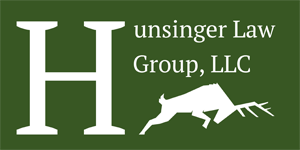Understanding the Basics. A Power of Attorney for Healthcare (Healthcare POA) allows an individual (the principal) to designate an agent to make healthcare decisions on their behalf if they become unable to do so. This document is crucial for ensuring that the principal’s healthcare preferences are respected.
Grounds for Challenging a Healthcare POA. To challenge a Healthcare POA, you generally need to demonstrate one or more of the following:
- Lack of Capacity: Prove that the principal lacked the mental capacity to understand the nature and consequences of executing the POA at the time it was made.
- Undue Influence: Show that the principal was subjected to undue influence or coercion by the agent or another party, impacting their decision to appoint the agent.
- Fraud or Misrepresentation: Establish that the POA was executed based on fraudulent information or misrepresentation by the agent.
- Breach of Fiduciary Duty: Demonstrate that the agent has not acted in the best interests of the principal, violating their fiduciary duty. This could include making decisions against the known wishes of the principal or engaging in self-serving actions.
- Abuse or Misuse of Authority: Provide evidence that the agent’s actions are harming the principal’s well-being or are not aligned with their medical needs or preferences.
Process for Challenging a Healthcare POA. These are the steps you need to follow.
Gather Evidence: Compile any relevant documentation, including medical records, witness statements, and correspondence that supports the claim.
Consult with an Attorney: Engage a lawyer who specializes in elder law or estate planning to assess the strength of the case and guide the legal process.
File a Petition in Court: The challenge is typically initiated by filing a petition in the probate court. The petition should outline the grounds for the challenge and include supporting evidence.
Court Hearing: The court will conduct a hearing to evaluate the evidence presented. Both parties may present witnesses and documentation.
Court Decision: If the court finds sufficient grounds, it may revoke the POA, appoint a new agent, or take other appropriate actions.
Likelihood of Success. The likelihood of success in challenging a Healthcare POA depends on the strength and clarity of the evidence presented. Courts generally uphold POAs unless there is compelling evidence of incapacity, undue influence, or misuse of power. The existence of clear, documented evidence significantly increases the chances of a successful challenge.
Powers of Attorney vs. Guardianship. In Illinois, a valid Healthcare POA generally takes precedence over a guardianship petition. This means:
- Precedence: If a principal has appointed an agent under a Healthcare POA, a court may be less inclined to appoint a guardian unless there is evidence that the agent is not acting in the principal’s best interests.
- Guardianship Consideration: A guardianship petition might be considered if the POA is invalidated or if the agent is found to be acting contrary to the principal’s wishes or best interests.
Remember: Ultimately, the court’s primary concern is the well-being and preferences of the principal. Therefore, any challenge to a POA or guardianship appointment will be assessed with these factors in mind. Engaging with experienced legal counsel can help navigate these complexities effectively.
©2024 Hunsinger Law Group LLC. All rights reserved.
